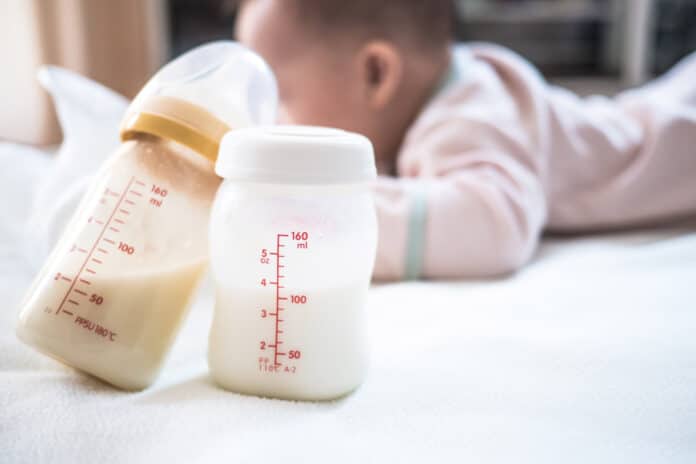Every year, approximately 11.1% of babies, or 15 million, are born prematurely around the world, putting both the mother and the infant at a higher risk of morbidity and mortality due to complications during labor and delivery.
In a 2020 study, more than 30% of surveyed women expressed a new preference for community-centered birth plans over hospital births. Researchers and public health professionals work together to develop and implement safe and effective policies and plans to promote overall public health.
Breastfeeding has long been used to keep newborns healthy and to protect them from sickness. However, specific carbohydrates in breast milk may help prevent infections before a baby is born. Human milk oligosaccharides (HMOs), which are abundant in human breast milk, were discovered by researchers in ACS Central Science to be capable of stopping a common prenatal infection in human tissues and pregnant mice. This could help prevent premature deliveries and problems without extra antibiotics.
Human breast milk (HMO) is a naturally occurring substance that may offer an attractive, desirable substitute for commercial antibiotics as medical intervention methods. In the infant’s stomach, HMOs serve as prebiotics, antiadhesive antimicrobials, and immunomodulators. These multifunctional carbohydrates are uniquely found in human breast milk. Anti-inflammatory and inflammatory immunological responses are common throughout pregnancy, and the gestational stage affects the mother’s sensitivity to infection.
Group B streptococcus (GBS) is a common bacterium found in the human gastrointestinal and reproductive tracts, infecting up to 30% of pregnant women. It has been linked to poor pregnancy outcomes such as premature birth, stillbirth, neonatal sepsis, pneumonia, and meningitis. Early-onset infections are most commonly caused by bacteria climbing from the vaginal tract, crossing placental membranes during pregnancy, or vertical transmission as the baby passes through the birth canal during delivery.
These infections can cause neonatal pneumonia or premature delivery. Antibiotics are generally used in treatments, which can result in resistant strains. Human milk oligosaccharides (HMOs) in human breast milk have antibacterial properties.
Researchers needed to demonstrate how these sugars work in tissues and in vivo before they could be utilized to supplement existing antibiotics or become a new treatment alternative. So the researchers decided to look into HMO activity in GBS infections in pregnant mice and human tissues.
The researchers investigated the protective effects of HMOs on human tissue infected with GBS using ex vivo fetal tissues and an organoid model of the vagina. The bacteria could not attach and establish colonies when they added a mixture of HMOs meant to replicate the sugar composition of breast milk. The HMO mixture was tested on pregnant mice infected with GBS, and the treated mice had a similar amount of inflammation, less bacteria in reproductive tissues, and no preterm births, burst membranes, or maternal deaths.
These findings show that HMOs can have antibacterial effects without additional antibiotics. This research could pave the way for HMOs to be used as a possible therapeutic option for treating GBS infections and preventing bad pregnancy outcomes.
In conclusion, the healthcare system is increasingly concerned about the hesitancy toward intervention, and natural substances like HMOs present a possible substitute for synthetic antibiotics. They may aim to enhance the healthcare system’s capacity to prevent and treat GBS infections during pregnancy by understanding more about the host-pathogen interactions and the processes behind them.
The National Science Foundation, the National Institutes of Health, and the Department of Veterans Affairs funded the study.
Journal Reference:
- Rebecca E. Moore, Sabrina K. Spicer, etal. The Utility of Human Milk Oligosaccharides against Group B Streptococcus Infections of Reproductive Tissues and Cognate Adverse Pregnancy Outcomes. ACS Central Science. DOI: 10.1021/acscentsci.3c00101
